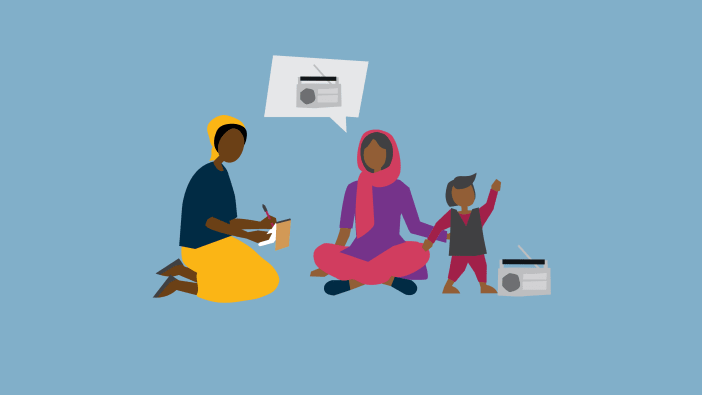One of the saddest things in life is to lose contact with friends and family members. In the world today there are ever increasing numbers of migrants. Some have migrated for economic gain, others are forced migrations. As technology has improved and spread across the world, communication between loved ones has become both increasingly possible and more affordable. It can also link poor people to a flow of resources that would otherwise be lost.
International communication
Economic migrants moving internationally to a neighbouring country, to Europe or the United States of America can now keep in touch using new technologies, such as ‘Voice-Over Internet Protocol’ (VOIP). VOIP is the ability to turn a voice (the phone call) into data, to send it over the internet and then convert it back into voice. One example of VOIP is Skype. VOIP means that in many situations a long-distance call can be made for free or for a small cost. Some governments in the South are resisting VOIP in order to protect the profits of large telecommunication companies. In some countries VOIP calls from internet cafés have been made illegal. In most cases, however, international migrants can communicate with home for a fraction of the cost that it used to be.
Internal communication
Local mobile phone systems are making life easier too. Rural families may not have their own phone, but they have increasing access to phones through friends and neighbours.
Benefits of maintaining communication
Communication between migrants and their family and friends is not just about love and friendship. They also need to know that each other is healthy and well. People remain in contact to keep their ‘social capital’. Social capital is the network o people who are there to help, support and encourage an individual.
People also keep in touch to maintain their ‘economic capital’. International migrants currently send home billions of dollars through the formal banking and money transfer system. The money that migrants send home is called remittances. In some countries, remittances can account for over ten per cent of the total ‘income’ of the country.
Internal migrants also often send money home to their families. Accurate figures are not available, but surveys tend to suggest that about 15 to 20 per cent of poor people in urban areas send money home to their rural families. This flow is increasing because mobile phones have enabled people to do the following:
- make ‘chaser’ phone calls from the rural families, such as ‘school fees are due. Could you please send something’.
- transfer money through mobile phones. In Kenya, a system called MPesa was launched by Safaricom in 2007, with support from international agencies. Many people who do not have a full bank account now have a way to transfer and manage money. A migrant can deposit cash with a local agent and is given a code. They pass the code on to the person to whom they want to transfer the money, who can convert the code into cash with their local agent.
New communication technologies are providing international and internal migrants with a way of maintaining love and concern for their families – in hearing that friendly voice, learning about and praying for various troubles, and for sending money both regularly and at times of crisis.
Simon Batchelor is an independent consultant.
Email: [email protected]
Website: http://www.gamos.org/








